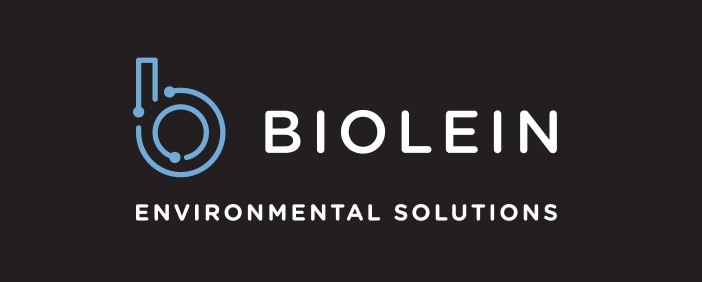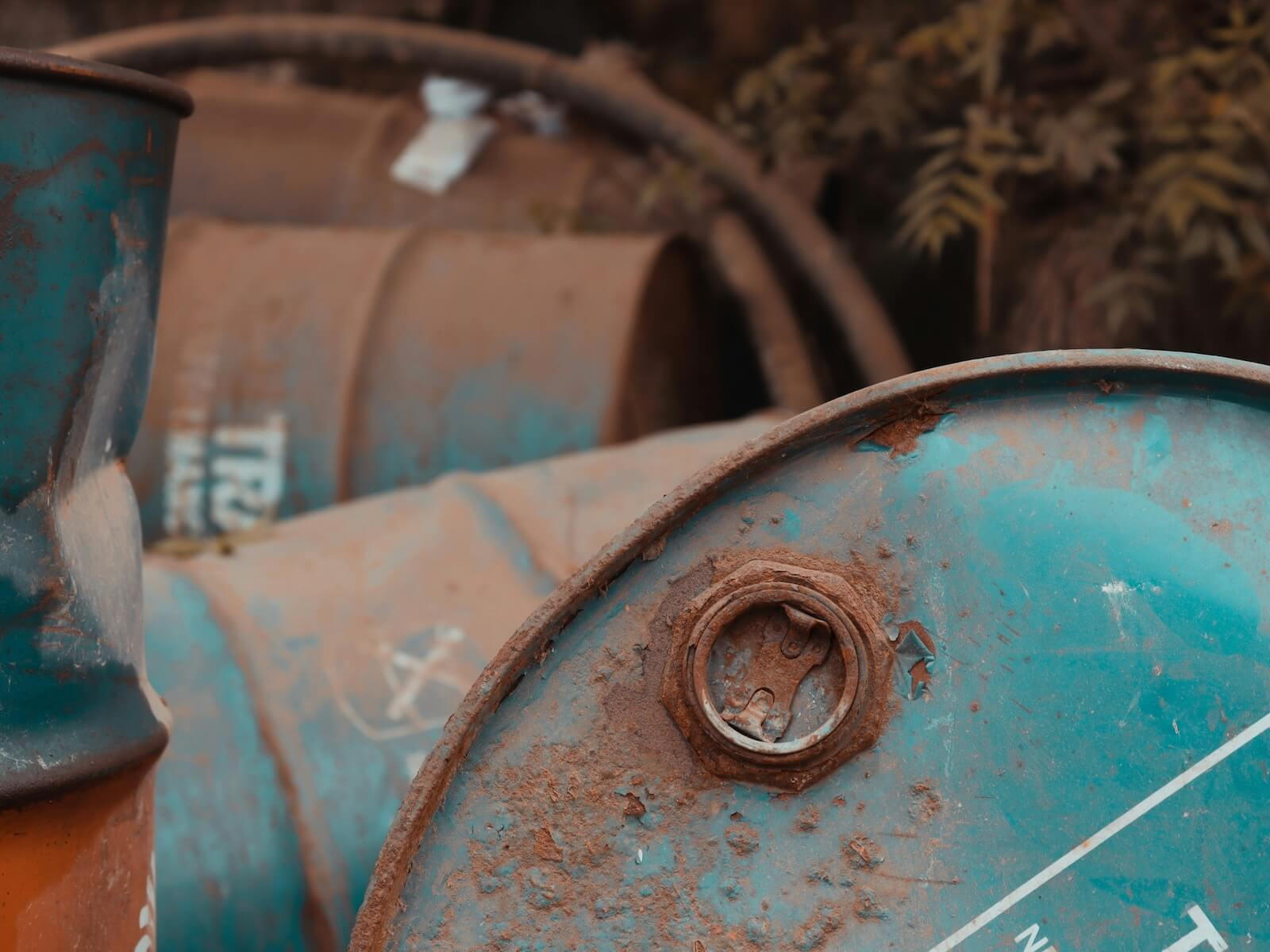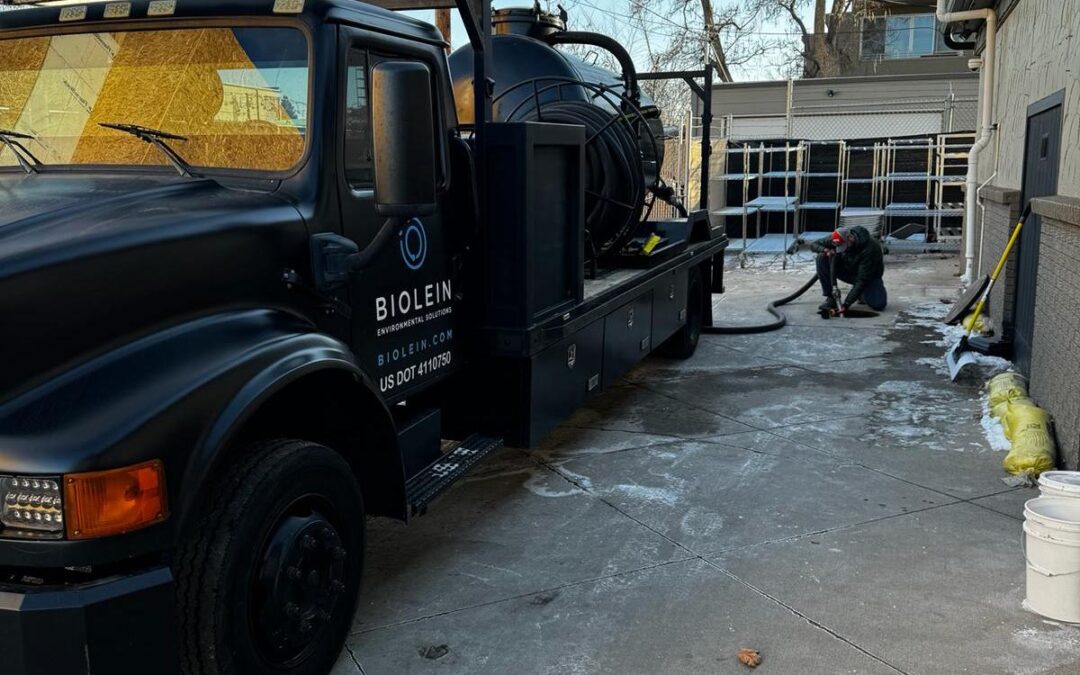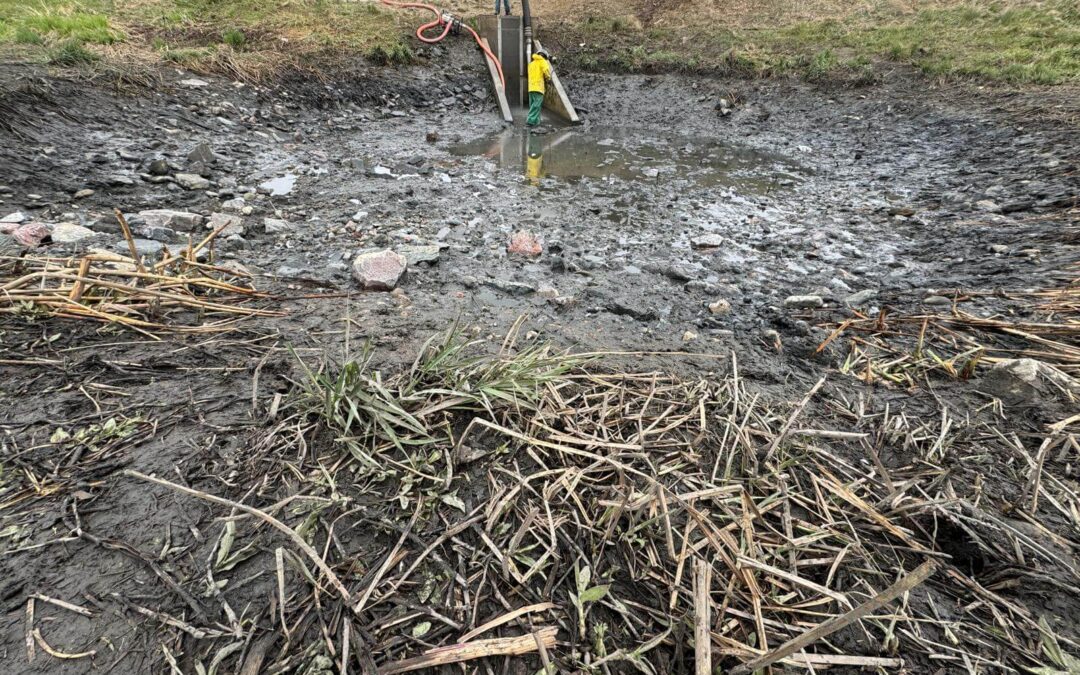Discovering an abandoned waste container or mystery drum on your property can be unsettling. Whether it was left behind by a previous owner, an unknown source, or illegal dumping, the key is to handle it safely, legally, and responsibly — without putting yourself, your community, or the environment at risk. Only professionals should handle unknown or toxic waste.
If you’ve found a sealed, unlabeled, or leaking drum, here’s what you need to know to assess the situation, avoid hazards, and properly dispose of the waste.
Step 1: Do Not Open, Move, or Disturb the Container
When faced with an unknown waste container, your first instinct might be to check what’s inside — but this can be extremely dangerous. Many industrial chemicals, hazardous materials, and waste byproducts can be toxic, flammable, or reactive when exposed to air, moisture, or movement.
Here’s why you should leave it alone until assessed by professionals:
- The contents could be corrosive or pressurized, leading to leaks or explosions.
- Some chemicals produce toxic fumes that can cause respiratory issues or burns.
- Moving the drum could cause spills, environmental contamination, or groundwater pollution.
Instead of handling it yourself, treat it as hazardous waste until confirmed otherwise.
Step 2: Identify Potential Clues About the Container
While you should never open or tamper with the drum, you can take steps to gather information for waste disposal professionals.
Look for the Following Details:
- Labels or markings: Some drums have manufacturer labels, hazard symbols, or chemical names that can provide clues about their contents.
- Condition of the drum: Check for signs of leaks, rust, dents, or corrosion that might indicate deterioration or hazardous materials inside.
- Location and history: Was the drum recently dumped, or has it been on the property for years? Nearby businesses, neighbors, or property records may provide clues about its origin.
If the container has no markings or visible damage, do not assume it is safe — many hazardous chemicals are stored in unmarked drums.
Step 3: Contact the Proper Authorities
Handling unknown waste is not just a safety issue — it is a legal one. If not addressed correctly, improper disposal of hazardous waste can lead to heavy fines, environmental damage, and liability issues.
Who to Call for Help:
- Local Environmental Agencies: Your city or county’s hazardous waste department may offer guidance or removal services.
- State or Federal Environmental Protection Agencies (EPA) – If the waste is suspected to be industrial or hazardous, a state or federal environmental agency may need to be involved.
- Professional Waste Disposal Services: Companies like Biolein specialize in hazardous waste identification, testing, and disposal, ensuring compliance with safety regulations.
- Law Enforcement (if needed): If you suspect illegal dumping or criminal activity, local authorities can investigate the source and take appropriate action.
Do not attempt to dispose of the container yourself. Hazardous waste disposal is highly regulated and requires specialized handling.
Step 4: Consider Testing for Unknown Substances
If authorities or a professional disposal service need more information about the drum’s contents, they may recommend waste testing and analysis.
How Waste Testing Works:
- A trained professional will collect a sample using safe procedures. Never attempt to handle the container yourself.
- The sample is analyzed to determine chemical composition, toxicity, and potential hazards.
- Based on the results, the waste is classified, and the safest disposal or treatment method is selected.
This process helps prevent improper disposal and environmental harm, ensuring that any hazardous material is handled according to federal and state laws.
Step 5: Arrange for Proper Disposal
Once the waste has been identified and classified, it must be disposed of following regulatory guidelines.
Common Disposal Methods for Hazardous Waste:
- Licensed Hazardous Waste Facilities: Special treatment centers handle toxic, flammable, or corrosive substances safely.
- Waste-to-Energy Processing: Some non-recyclable waste can be converted into fuel or energy.
- Neutralization or Stabilization: Some hazardous chemicals can be treated to make them safe for disposal.
What You Should Avoid:
- Do NOT dump the drum in the trash: Many waste facilities will refuse unknown or hazardous materials.
- Do NOT pour the contents down a drain or onto the ground: This can contaminate water supplies, soil, and local ecosystems.
- Do NOT transport hazardous waste without proper permits: Handling it improperly can result in severe legal consequences.
By working with an experienced waste disposal provider like Biolein, you can ensure that any unknown materials are safely handled and disposed of in full compliance with environmental regulations.
Step 6: Prevent Future Waste Dumping on Your Property
If a mystery waste container appeared on your land, it may not be an isolated incident. Prevent future illegal dumping with these proactive steps:
- Install Security Cameras & Signage: Motion-detecting cameras and “No Dumping” signs can deter potential offenders.
- Secure Access Points: If you own commercial or industrial property, lock gates and entrances to prevent unauthorized dumping.
- Report Suspicious Activity: If you suspect illegal waste dumping in your area, alert authorities to prevent further incidents.
Taking these precautions can reduce your liability and protect your property from future environmental risks.
Don’t Take Risks With Unknown Waste
An abandoned drum on your property is not just an inconvenience — it can be a serious hazard. Whether the waste is toxic, flammable, or simply unknown, handling it improperly could put your health, your community, and the environment at risk.
Instead of guessing, take the right steps:
- Avoid moving, opening, or tampering with the container.
- Gather basic information without disturbing the waste.
- Contact hazardous waste professionals to assess and safely dispose of the material.
If you’ve discovered an unknown waste container on your property, Biolein is here to help. Our environmental specialists provide professional hazardous waste identification, testing, and disposal services to keep your property safe and compliant.
Need assistance with hazardous waste? Contact us today for expert guidance and safe disposal solutions.
Biolein has become a trusted partner for hydrovac excavation, environmental waste management, environmental consultation for hazardous waste, and drainage solutions across Colorado and beyond. We’re not just an environmental services company in Denver — we’re the team you can count on to tackle the tough jobs and keep things running smoothly.





